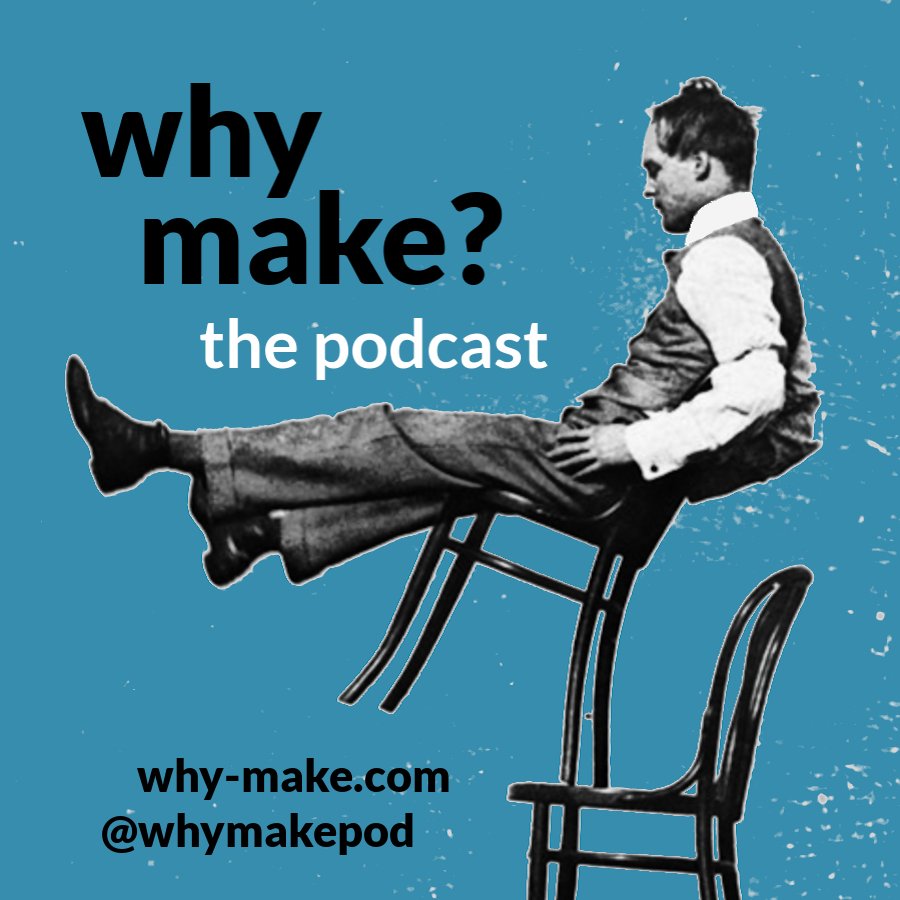Dec 10 2024 26 mins
In this episode, we are returning to our “Mind of a Maker” mini series with furniture maker and sculptor Ellie Richards, the idea behind the “Mind of a Maker” series, which is a new element inside the regular why make podcast is to talk to artists about the genesis and creation of a specific work, or body of work, in a sense, peeling back the onion yet one more layer to further expose that messy thing that is the creative process.
This story starts with an idea that was brewing for years before Ellie began making the piece we talk about in this episode, and that idea was a fascination with the fantasy coffin practice that exists in Ghana. Fantasy coffins, as the word implies, are fantastical, large, hollow, sculptural forms built almost entirely with hand tools that can be just about anything from a jet plane to a tomato… basically trying to capture a person's passions as they pass on and they are, quite simply, then buried in it, a practice far different from our western views on death and burial. She was encouraged to pursue her exploration of fantasy coffins by the artist Eric Adjetey Anang, a descendant of the original Ghanaian coffin makers. Eventually Ellie started to consider how to use these skills to create an object of her own design, and in this edition of Mind of a Maker, Ellie walks us through the process from inspiration to the final construction of her piece titled Basket Casket.
To see Ellie at work on the Basket Casket… Check out our short film on the video page of why-make.com, or find it on Youtube. Here are links to Eric Adjetey Anang and the Kane Kwei workshop. If you want to learn more about the fantasy coffin practice in Ghana.
Music for this episode was generously provided by Jim Roberts, the guest on why make episode 64. It comes from his recordings, Waka, Waka and Two Traditions. Additional music comes from The Ghana Project 2013,that recorded several traditional funeral songs performed by Ghanaian artists in Ghana. It’s used in this episode under a Creative Commons license. You can find more of their recordings on YouTube by searching the username “the Ghana Project 2013.” Finally, music in our episode also came from the Internet Archive,
>
View fullsize

>
View fullsize

>
View fullsize

>
View fullsize

>
View fullsize

>
View fullsize

>
View fullsize

>
View fullsize

>
View fullsize

>
View fullsize

>
View fullsize

>
View fullsize

>
View fullsize

>
View fullsize

>
View fullsize

